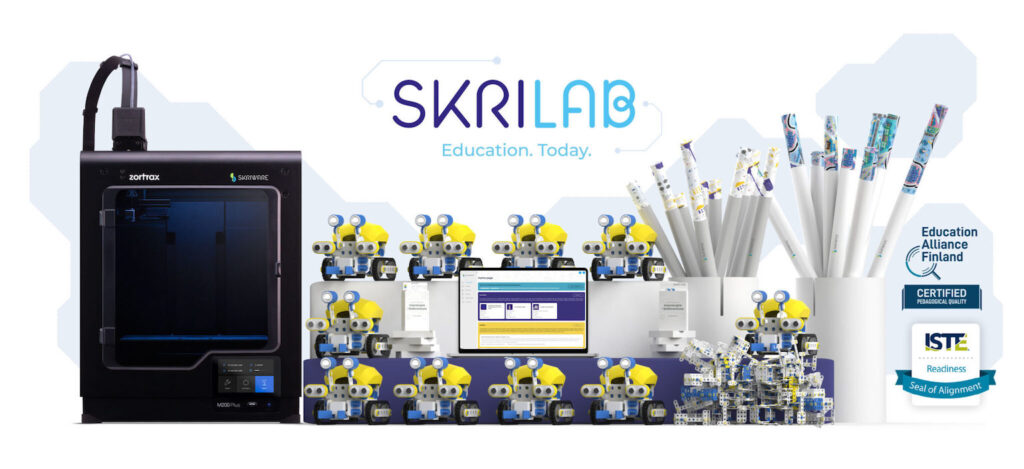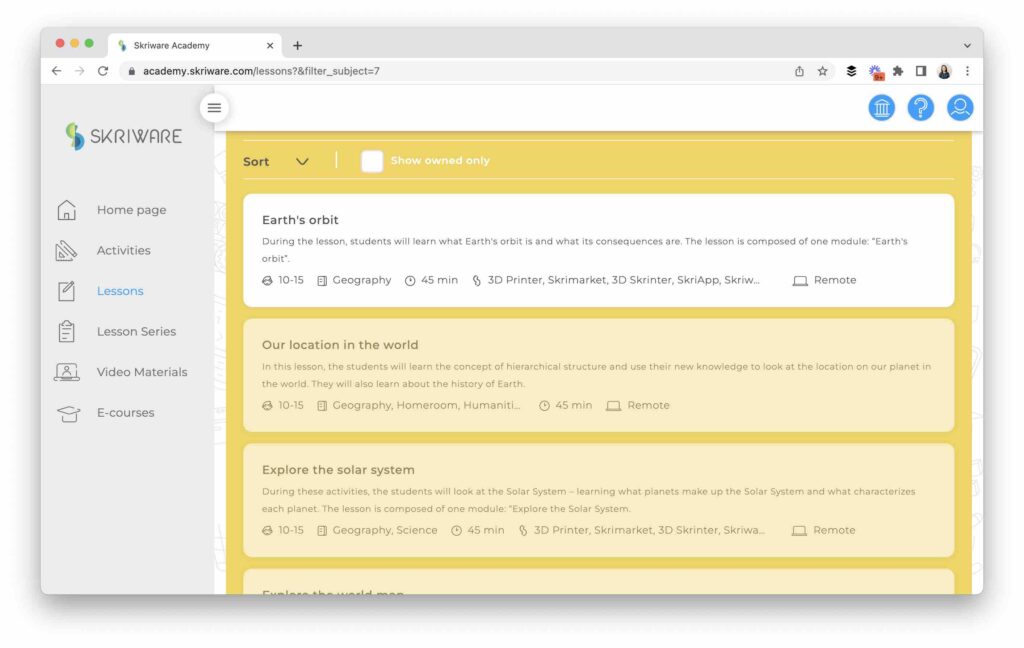Do you teach STEAM concepts in your classroom? STEAM concepts fit into many different areas of a student’s school day. Teaching STEAM concepts across the curriculum is possible with intentional integration throughout content areas.
In today’s blog post, I have 5 examples of teaching STEAM across your curriculum, and I’ll share SkriLab from Skriware. They have lots of resources for educators who want to bring STEAM concepts into their classrooms!
4 Examples of Teaching STEAM Across Your Curriculum
Bringing STEAM into your classroom might feel like a challenge without the right resources and support. Here are four examples of how you can incorporate STEAM concepts in different content areas.
English Language Arts
Have students create multimedia presentations that explain a STEAM concept they’ve explored. This is a great way to incorporate speaking and listening skills and standards alongside a STEAM learning experience.
Math
In a math classroom, you can make a coding connection by asking students to make decisions as they build a robot. For example, they can change the speed and direction of the robot they built and think about how to scale the size and speed of their creations.

Science
Students can build models using the 3D software to envision different elements in their world. This could include building out models of parts of a cell or looking at how different molecules come together.
Social Studies
With their 3D printer, students can print out models they have designed that help them examine the shape and scale of different countries and continents. This is also a great way to help students explore various landmarks around the world.
Note: The Skriware Academy contains lots of ideas for teaching STEAM across your curriculum. Use this link to learn more.
Teaching STEAM with SkriLab
Have you heard of Skriware or SkriLab? This month on my Easy EdTech Podcast, you’ll hear from Karol Górnowicz, CEO of Skriware. He joins for a special bonus episode. We discuss the importance of introducing STEAM concepts in K-12 learning environments.
Last year, I first met the team at Skriware at the ISTE Conference in New Orleans. So you can bet I was excited to hear that they have earned the official Seal of Alignment with ISTE Standards for Students. This means that it aligns well with the ISTE Standards for Students and provides integration into design thinking, computational thinking, and group collaboration, too.
As I mentioned above, the Skriware Academy has lots of resources for educators. It’s an excellent platform for helping you quickly locate resources you can use as is or adapt for your group of students. You can find lessons for all sorts of topics, from geography (like in the screenshot below) to Chemistry and even early childhood education.

Teaching STEAM Concepts
SkriLab is a new offering in the U.S. but has been out in the international market since the end of 2020. It is already used by educators and students in Poland, New Zealand, Ireland, Oman, and more countries!
SkriLab combines 3D printing, robotics, and programming into a single educational lab. In addition, the lab features several different resources you can use to bring STEAM learning experiences to all of your students. On this page you can find the details of everything you’ll get by bringing SkriLab to your school or classroom.
SkriLab for Teaching STEAM
With SkriLab, students and teachers will have access to a 3D Printer named 3D Skrinter, 12 SkriBot educational robots, 1 SkriKit L academic building blocks (almost 5000 construction elements included in the set), and more. Teachers will also get access to Skrimarket and Skriware Academy. Skriware Academy is an online platform designed to support teachers with STEAM integration in different subject areas.
As you can see in the video above, Skriware is committed to preparing students for the future. Their resources help students build critical thinking skills and creativity as they explore STEAM concepts in different subject areas.
Ready to get started teaching STEAM in all subject areas? This link will take you straight to Skriware’s website to learn more about SkriLab.







